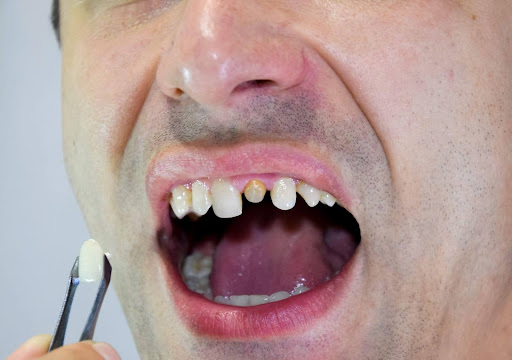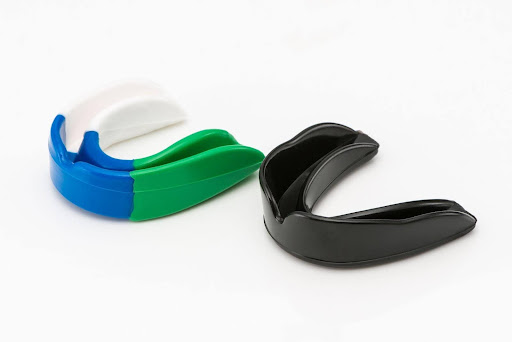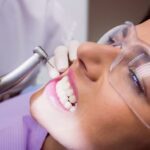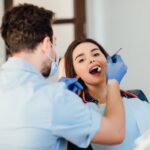Dental emergencies can occur at times, causing discomfort, anxiety, and disruption to your daily routine. A throbbing toothache in the middle of the night, a chipped tooth after a fall, or sudden and uncontrollable bleeding gums are all dental emergencies. Knowing what constitutes a dental emergency, where to find an emergency dentist in Melbourne, and how to handle it effectively can make a significant difference in minimising pain, preventing further complications, and ensuring prompt recovery.
This blog post serves as your guide to understanding emergency dental care. We’ll explore common dental emergencies, outline the steps to take in each situation and provide guidance on finding urgent dental help. We’ll also discuss the importance of prevention and preparedness to minimise the risk of emergencies and ensure a healthy smile.
Common Dental Emergencies
Dental emergencies include a variety of problems, such as:
Severe pain: A sudden and intense toothache, throbbing pain in your jaw, or excruciating pain when biting down are all signs of a potential dental emergency.
Bleeding gums: While minor gum bleeding after brushing can be normal, excessive or persistent bleeding following flossing or brushing could indicate a more serious issue.
Swollen face or gums: Facial swelling, particularly near the area of a tooth, can be a sign of infection and requires immediate attention.
Loose or knocked-out tooth: A loose tooth due to trauma or a recently knocked-out tooth demands urgent dental care to preserve the tooth or explore reattachment options.
Fractured or broken tooth: A cracked, chipped, or broken tooth can expose the inner pulp of the tooth, causing pain and increasing the risk of infection.
Abscess: An abscess is a pus-filled pocket around an infected tooth and can cause significant pain, swelling, and even fever.
If you experience any of the above symptoms, seeking immediate dental care is crucial to prevent potential complications and minimise discomfort.

Steps to Take During a Dental Emergency
In case you experience a dental emergency, take these actions:
Rinse your mouth with warm salt water: This can help reduce swelling and discomfort. Mix half a teaspoon of table salt in a glass of warm water and swish gently for 30 seconds before spitting.
Examine the Situation: Evaluate how severe the dental problem is and decide if you need immediate treatment.
Relieve Pain: Over-the-counter painkillers like ibuprofen or acetaminophen can help reduce discomfort until you can see a dentist.
Stop Bleeding: Apply light pressure to any bleeding areas with a clean cloth or gauze.
Recover Lost Tooth: If a tooth gets knocked out, hold it by the crown (top part) and rinse it gently with water if you can; try to put the tooth back in its socket or put it in milk or saliva to keep it moist.
Remember: These are just temporary measures. For all dental emergencies, the most critical step is to seek immediate professional attention from a dentist.
How to Find Help for an Urgent Dental Issue
Many dental practices offer emergency appointments to address urgent dental needs. It’s advisable to contact your regular dentist first, even outside regular business hours, as they might have an emergency call system in place. Alternatively, you can search online for an emergency dental clinic, such as Diamond Dentist Bundoora, or call a dental referral service in your area.
Prevention and Preparedness
Though it is unforeseeable when a dental crisis may happen, Here are some preventative measures you can take:
Maintain good oral hygiene: Regular brushing and flossing with fluoride toothpaste is crucial for removing plaque and bacteria, which can contribute to cavities and gum disease. Aim to brush twice a day for two minutes each time and floss daily.
Schedule regular dental check-ups: Preventive dental care is key to identifying potential problems early on. Regular check-ups allow your dentist to detect cavities, gum disease, and other issues before they become major emergencies.
Wear a mouthguard: If you participate in contact sports or activities with a high risk of falls, wearing a properly fitted mouthguard can help protect your teeth from fractures and injuries.
Be mindful of your diet: Limit sugary foods and drinks, as they can contribute to tooth decay. Consume plenty of fruits, vegetables, and calcium-rich foods to nourish your teeth and gums.

Conclusion: Be Prepared for Dental Emergencies
It’s important to take preventive measures when it comes to dental care. However, even with a diligent oral hygiene routine, you may still experience a dental emergency. In such cases, being prepared can make a significant difference in how you handle the situation.
To start with, keep your dentist’s contact information handy. Ensure you have their phone number and emergency contact details readily available on your phone or in a designated place at home.
It’s also a good idea to assemble a dental emergency kit. This can include basic supplies like pain relievers, gauze pads, a cold compress, and a container for storing a knocked-out tooth (milk or saline solution). By following these tips, you’ll be better equipped to handle a dental emergency with more confidence and minimise the disruption to your daily life.
Bonus Tip: Follow Up with Your Dentist
After you get urgent dental care, make sure to connect with the dentist you usually see for a full check-up and any other care you might still need. Regular dental appointments are crucial for keeping your mouth healthy and avoiding other dental emergencies.





